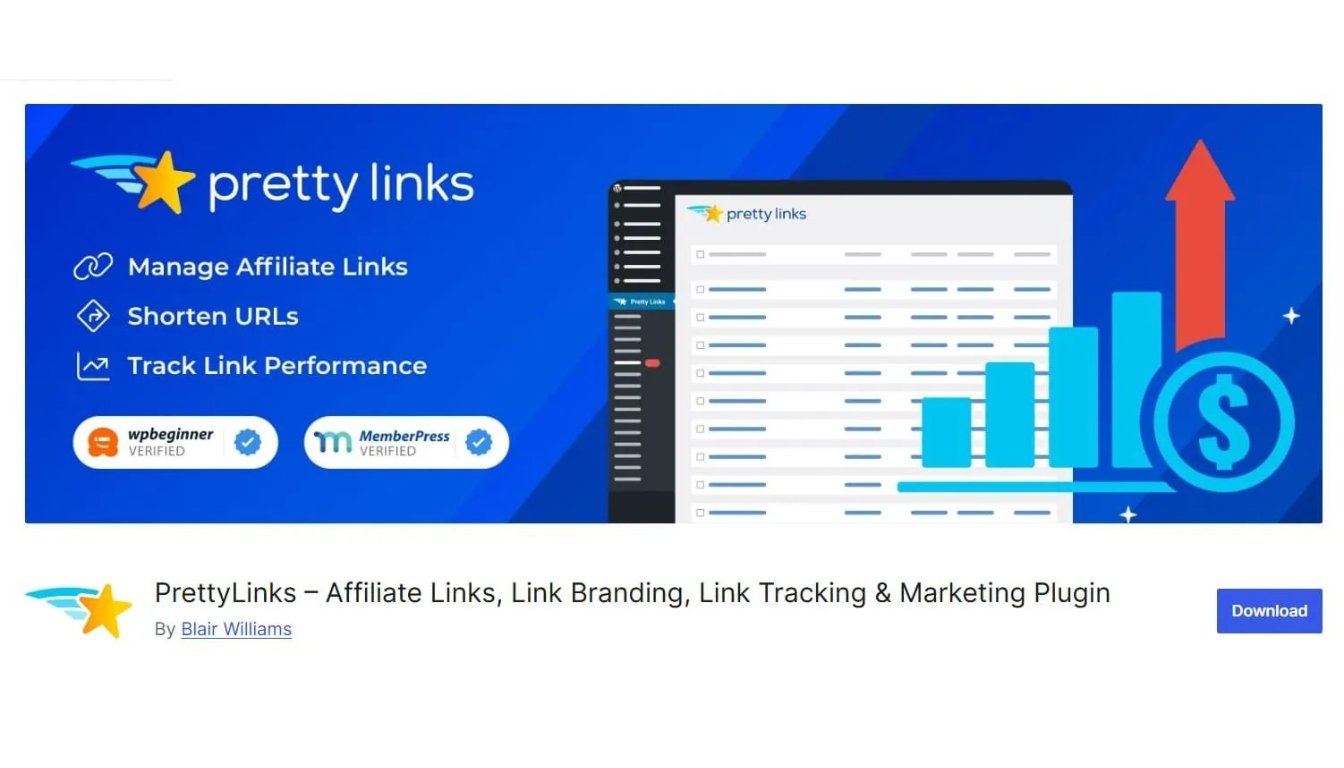Affiliate Disclaimer: Some of the links on this site are 'affiliate links.' This means if you click on the link and purchase the item, we may receive an affiliate commission.
Affiliate marketing tools aren’t just nice to have—they’re the backbone of an efficient and profitable affiliate business. As a beginner, you might feel overwhelmed by the sheer number of options out there. The good news? You don’t need every tool, just the right ones for your goals. By following a clear, step-by-step approach, you can simplify your workflow, increase earnings, and avoid wasting time on tools that don’t work for you. Ready to find out how? Let’s make this process straightforward and stress-free.
Key Takeaways
- Understand your goals. Think about what you want from affiliate marketing—better income, time savings, or ease of use.
- Keep simplicity in mind. Choose tools that don’t overwhelm you and are easy to learn, especially as a beginner.
- Focus on essential features. Look for tools that help with tracking links, managing commissions, and automating tasks.
- Go for tools with strong support. A platform with tutorials, FAQs, or customer service can save you frustration later on.
- Work within your budget. Free or affordable tools are a good starting point. Upgrade only when you’re ready.
- Check compatibility. Make sure the tools work smoothly with the platforms you already use, like your website or social media.
- Test before committing. Many tools offer free trials—take advantage of them to see if the tool feels right.
- Read reviews and recommendations. Learn from others’ experiences to avoid wasting time and money.
- Start small. Don’t overwhelm yourself with too many tools at once. Begin with just one or two that meet your current needs.
- Stay flexible. As you grow, be open to switching to more advanced tools that better support your progress.
Here’s a helpful YouTube video about some free affiliate marketing tools: Watch it below.
Understanding Affiliate Marketing Tools
Affiliate marketing can feel like navigating a maze without the right tools to guide you. Whether you’re managing links, creating content, or analyzing campaigns, affiliate marketing tools make your day-to-day efforts easier to handle. Choosing the right ones is key to building a process that works for your unique goals. Let’s break down what these tools are and how they can make your affiliate marketing experience smoother.
What Are Affiliate Marketing Tools?
Affiliate marketing tools are software or platforms designed to help you run and optimize your affiliate marketing campaigns. They cover a range of tasks, from tracking and managing your links to analyzing performance data and creating engaging content that sells. Here are some of the most common types of tools:
- Analytics Tools: These help you evaluate how well your campaigns perform over time. For example, tools like Google Analytics and SEMrush let you track clicks, conversions, and overall ROI. Learn more about effective analytics tools in this detailed guide.
- Link Tracking Tools: Platforms like Pretty Links or ClickMeter allow you to monitor which links drive traffic, ensuring you know exactly what’s working and what needs adjusting.
- Content Creation Tools: Content is king, right? Tools like Grammarly for polishing your work or Canva for creating visuals can breathe life into your blog posts, emails, or social media campaigns.
- Campaign Management Tools: These tools make it easier to juggle multiple campaigns at once. For instance, ShareASale and Scaleo simplify affiliate management by organizing everything in one place. Dive deeper into these tools here.
Each of these tools plays a specific role in your strategy. Think of them as the gears that keep the machine of affiliate marketing running.
How Tools Simplify Affiliate Marketing
The beauty of affiliate marketing tools lies in how much they simplify what can otherwise be overwhelming. Let’s face it, manually tracking hundreds of links or constantly switching between spreadsheets is not the most efficient way to work. So how exactly do these tools make life easier for you?
- Automating Repetitive Tasks
Tools like link management or email automation platforms do the tedious grunt work so you don’t have to. For instance, an automated tool can handle inputting affiliate links across your content or sending follow-up emails to your readers—all on autopilot. You can focus on creative tasks instead of wasting hours in monotony. Want to know more about how automation helps? Check out this article. - Streamlining Performance Tracking
Imagine trying to manually calculate how well each affiliate link is performing. It’s a time-sucking nightmare. Tools like Affise or Google Analytics pull all the key metrics into one place, so you get a clear, instant picture of what’s working. Here’s more on how tracking tools can help boost efficiency: Read here. - Boosting Productivity
By using tools that consolidate tasks—like a platform that combines campaign management with reporting—you get more done in less time. This increases your efficiency and gives you a competitive edge. Curious about productivity tools? Check out this resource.
When you take advantage of these tools, you’ll be surprised by how much smoother your workflow becomes. It’s like switching from a manual typewriter to a high-speed laptop—the difference is night and day.
Defining Your Goals and Needs
Choosing the right affiliate marketing tools starts with understanding what you need and why you need it. It’s like shopping for new sneakers—you wouldn’t grab a pair without knowing your size or whether you’re heading to the gym or a fashion event, right? In this section, we’ll help you narrow your focus by identifying your goals, assessing your budget, and evaluating your technical expertise.

Identifying Your Marketing Goals
Before exploring the endless array of affiliate marketing tools, take a step back and ask yourself: What am I hoping to achieve? Your tools need to match the objectives you set, so getting clear on this upfront will save you from wasting time and money on solutions that don’t fit.
Here are some common goals you might have:
- Boosting website traffic: If your aim is to drive more people to your site, tools focused on SEO and traffic analysis (like Google Analytics) can help you track your success. For more tips on how to set effective affiliate marketing goals, check out this article: How to Set Affiliate Marketing Goals.
- Improving conversions: Maybe your priority is getting visitors to take action. Tools such as A/B testing platforms or conversion optimization software can reveal what works (and what doesn’t) to turn clicks into actual sales.
- Increasing engagement with your audience: If building a loyal following who interacts with your content is on your list, consider tools like email marketing services or social media analytics platforms.
Write your goals down, and don’t be afraid to be specific! Saying “I want more traffic” is too vague. Aim for measurable and actionable targets, like increasing your weekly visitors by 20% over the next two months.
Determining Your Budget
Once you’ve mapped out your goals, it’s time to think about how much you’re able—or willing—to spend. Some tools have steep learning curves and price tags, while others are free and simple. The key here is to balance your financial resources with your must-have features.
When planning your budget, consider:
- Free vs. Premium: Plenty of high-quality free tools, like Canva or Mailchimp (basic plan), are perfect for those just starting. As your business grows, you might need more robust options with premium features—these come with a cost. Learn more about budgeting for affiliate marketing with this helpful post: Affiliate Marketing on a Budget.
- One-time vs. ongoing expenses: Some tools require a one-time payment, while others have monthly subscriptions. Be realistic about what you can afford to spend long-term.
- ROI (Return on Investment): A pricier tool might seem daunting, but if it significantly boosts your conversions or saves you hours of work each week, it can be worth every penny.
If you’re unsure where to start, test-drive free trials before committing. You’ll get a feel for the tool without financial risk.
Assessing Your Level of Technical Expertise
Last but not least, your comfort with technology plays a huge role in choosing the right tools. Think of this as your personal skill assessment. If you’re a total beginner, diving headfirst into overly technical software might leave you feeling frustrated and discouraged. On the other hand, if you’re tech-savvy, you can explore more advanced options with complex features.
Here’s how to approach this based on your experience:
- Beginners: Look for user-friendly tools with drag-and-drop interfaces or easy learning curves. Platforms like Wix for website building or Pretty Links for link tracking are designed for those new to the game.
- Experienced marketers: If you’re comfortable with settings, integrations, and advanced analytics, consider options like ClickMeter or advanced SEO tools like Ahrefs, which offer in-depth customization.
- Tech Integration: Some tools may also require combining with others, such as CRM or advertising platforms, so ensure you’re not getting overwhelmed by too many moving parts. Remember, finding tools suited to your expertise is like choosing gear for a workout—start with light weights if you’re new to the gym. You can work your way up as you gain confidence. If you need guidance on assessing skill readiness for affiliate campaigns, explore this resource: Essential Skills and Knowledge for Affiliate Marketing.
By clearly identifying your goals, budgeting wisely, and understanding your tech capabilities, you’ll set yourself up for success as you start building your affiliate marketing toolkit. Each step strengthens your foundation, ensuring the tools you pick truly work for your needs.
Key Features to Look For in Affiliate Marketing Tools
Affiliate marketing tools should do more than just throw a few features together; they need to provide solutions that make your life easier while helping you maximize your potential earnings. Whether you’re managing links, crafting content, or scaling your business, the features within these tools are what elevate them from “nice-to-haves” to “must-haves.” Here are the most critical features to consider while choosing the perfect tools for your affiliate marketing journey.

Analytics and Tracking Features
Having a clear picture of how your affiliate campaigns are performing is like having a GPS—it keeps you from wandering aimlessly. Reliable tools with robust analytics and tracking features allow you to see exactly which links are driving traffic, which campaigns convert into sales, and where your visitors are coming from. The more precise your insights, the better your decisions.
- Click and Conversion Monitoring: Tools with real-time tracking capabilities let you see how users interact with your content. For example, platforms like Google Analytics break down traffic data, showing visitor sources and behaviors. Explore more about tracking essentials in this guide.
- Performance Metrics: You’ll want tools that summarize key metrics such as ROI, customer acquisition costs, and conversion rates. If your data paints a clear picture, it’s easier to direct your marketing efforts to what’s working.
Failing to track performance is like throwing darts blindfolded; you’re just hoping something lands in the bullseye. With analysis-backed insights, success feels less like guesswork and more like a crafted strategy.
Integration Options
No one likes tools that act as islands—they need to work seamlessly with platforms you already use. Ideally, affiliate marketing tools should offer integration options so you can avoid the hassle of switching back and forth between applications.
- E-commerce Platforms: Whether you’re using Shopify to manage an online store or WordPress for a blog, integration ensures smooth data sharing and streamlined management. Popular solutions like Tapfiliate are known for their compatibility with major platforms. To learn more about integration-friendly options, check out this resource.
- Payment Gateways and CRMs: Your tools should connect to payment systems like PayPal or Stripe to simplify affiliate payout processes. Connections with CRMs take it further, helping you keep a tab on customer relationships and potential leads.
Having tools that “talk” to each other is like putting together puzzle pieces—it results in a complete, cohesive picture of your workflow. Without these integrations, your work can quickly feel disorganized.
Automation Capabilities
Let’s be honest: manual work can be exhausting. This is where automation comes in handy, acting like a personal assistant to take care of repetitive or mundane tasks. The right affiliate marketing tools help automate key processes, so you can focus on scaling the creative side of your business.
- Email Campaigns: Automated email marketing platforms can nurture leads without any extra effort. Need to thank a new subscriber, or follow up with potential buyers? The tool handles it for you. Dive deeper into automation strategies with this article.
- Content Posting: Publish your blogs or social media posts on a schedule without lifting a finger. Tools like Buffer and Hootsuite integrate smoothly, keeping your pipeline full of fresh content.
- Performance Monitoring: Many tools now offer automated performance reports, delivered straight to your inbox. Imagine waking up every Monday with all your analytics neatly presented—that’s automation done right.
Think of automation as putting your routine on autopilot, much like having a dishwasher instead of scrubbing every plate by hand. The time you save can be redirected to high-value activities, like creating powerful campaigns that resonate with your target audience.
Scalability and Customization
As your affiliate business grows, the tools you use should grow with you. Scalability is about ensuring the software can handle increased website traffic, transactions, or new affiliate partnerships. Customization, on the other hand, allows the tool to adapt to your unique style and operations.
- Growth-Friendly Processing: Tools like Scaleo are built to support businesses as they expand—accommodating more data, larger audiences, and added campaigns without skipping a beat. Learn about tools designed for scalability in this comprehensive guide.
- Tailored Features: Customizable dashboards, commission structures, or even branded affiliate portals make a significant difference when tailoring your business presence. It’s like designing a suit—it needs to fit you perfectly, not “just okay.”
Without considering scalability and customization, you might find yourself switching platforms more often than you’d like. Starting with the right foundation ensures your efforts build upwards, not sideways.
By keeping these essential features in mind, you’re setting yourself up for affiliate marketing success. The right tools align with your goals, streamline your daily work, and provide flexibility as you grow.
Popular Affiliate Marketing Tools to Consider
Whether you’re new to affiliate marketing or looking to sharpen your strategy, the right tools can make a world of difference. These tools not only streamline your workflow but also maximize your campaign’s effectiveness. Let’s break it down into three key categories to help you pick what’s best suited for your needs.
Top Analytics Tools

If data feels like a foreign language to you, analytics tools are your translator. They provide easy-to-digest insights about your traffic, conversions, and overall performance. Two standout options for affiliate marketers are Google Analytics and Ahrefs, both essential for making smart, informed decisions.
- Google Analytics: This is a free, versatile tool that lets you track visitor behaviors, referral sources, and conversion rates. Need to know where your clicks are coming from? Google Analytics breaks it down so you can amplify traffic sources that deliver. For a detailed insight into how to use it in affiliate marketing, check this out.
- Ahrefs: While known for its SEO prowess, Ahrefs adds significant value to affiliate marketers. It helps with everything from finding high-performing traffic keywords to analyzing backlinks that drive authority. It’s like having a compass for your online strategies. You can learn more about its benefits here.
At the core of your campaigns, analytics tools are your secret weapon, helping you make data-driven moves with confidence.
Best Link Tracking and Management Tools

Keeping affiliate links organized may feel overwhelming, especially when working with multiple programs, but link management tools simplify the game. Let’s highlight tools like Pretty Links, designed to help you manage links so nothing slips through the cracks.
- Pretty Links: For WordPress users, Pretty Links is a must-have. It shortens your affiliate URLs into neat, trackable links that are easier to share. Beyond aesthetics, tools like this allow you to track which links perform well—and which don’t. Discover more in this review of affiliate tracking tools.
A good link management tool is like having an organized filing system—everything is easy to find and works seamlessly.
Content Creation and SEO Tools
Good content turns clicks into commission, and affiliate marketing thrives on quality content that speaks directly to your audience. Tools like Grammarly and Unbounce can take your writing and page optimization skills to the next level.
- Grammarly: You wouldn’t send a letter full of typos, would you? Grammarly ensures your blogs, emails, and promos are polished and professional, giving you credibility. Plus, it even offers tone optimization to better connect with your audience. Looking for other top-rated tools? Explore more here.
- Unbounce: If landing pages are integral to your affiliate strategy, Unbounce is a household name. Easily test different designs, optimize load speeds, and fine-tune user experience to increase conversions.
Think of these tools as your creative partners, ready to refine your content and ensure your pages perform without flaws.
By equipping yourself with these tools, you not only streamline your workflow but also position yourself for long-term success in affiliate marketing.
Making the Final Decision
Choosing the best affiliate marketing tools is one of the most critical steps in setting yourself up for success. It’s not just about picking the software with the highest ratings or the fanciest features; it’s about finding solutions that fit your needs today while being adaptable for tomorrow. This section will help you take those last few steps—testing the tools, seeking other opinions, and staying flexible as your business evolves.
Testing the Tools
Before you commit to any affiliate marketing tool, always take advantage of free trials or demos. It’s like test-driving a car before you buy—you wouldn’t want to jump into a long-term relationship with software that doesn’t meet your expectations. Many tools offer limited-time trial versions or demo features so you can explore how they work and whether they align with your goals.
For example: does the platform provide clear analytics? Is the interface user-friendly, or does it feel frustrating to navigate? You’ll only know by getting hands-on experience. A free trial allows you to work through the learning curve and see if it makes your workflow easier.
If you’re wondering whether a free trial or demo fits your needs better, this guide from UserPilot explains the benefits of each option. The bottom line? Testing helps you avoid costly mistakes and ensures you’re only investing in tools that genuinely benefit your business.
Seeking Recommendations and Reviews
Why go through the trial-and-error process alone when you can learn from others’ experiences? Recommendations and reviews are goldmines of information, often highlighting aspects of a tool that you might not have considered. Feedback from affiliate marketing communities, forums, and trusted reviewers provides unique insights about a software’s strengths or potential pitfalls.
Start by exploring active affiliate forums like those mentioned in this overview. These communities are filled with real-world examples, often from marketers who’ve already tested the tools you’re considering. Another idea? Look for in-depth reviews on blogs and aggregator sites, which compile user experiences into a single, digestible resource.
Additionally, check for recurring themes in the reviews. If multiple users complain about unreliable customer support or tricky integrations, it’s a red flag. Similarly, glowing praise for specific features—think automation capabilities or ease of setup—can make decision-making easier.
Staying Flexible with Your Choices
If there’s one constant in the affiliate marketing world, it’s change. Consumer behavior shifts, new marketing trends arise, and what worked for you six months ago might not work now. That’s why flexibility when choosing and using your affiliate tools is key.
Think of your toolkit as a living, breathing part of your business—something that will need updating as you grow. Maybe you’re starting with a budget-friendly solution like Pretty Links, but later, you may want to upgrade to a more robust option as your campaigns scale. Flexibility also involves reevaluating your tools periodically. Ask yourself: Is this still solving my biggest challenges? If not, don’t be afraid to move on.
Adaptability is essential for staying ahead in the ever-changing affiliate space. For more tips on being flexible and adjusting your strategy, check out this resource on adapting your affiliate marketing strategy.
By testing, seeking recommendations, and keeping an open mind, you can confidently finalize your decisions and start building an affiliate marketing system that works for you.
FAQs: How to Pick the Best Affiliate Marketing Tools for Beginners in 2025
What exactly are affiliate marketing tools for beginners?
Affiliate marketing tools help you manage and grow your affiliate campaigns. For beginners, these tools simplify tasks like link tracking, website optimization, or data analysis, so you can focus on earning commissions. Examples include platforms like ClickBank, CJ Affiliate, and tools like Google Analytics for tracking performance.
How do I choose the right affiliate marketing tools?
Start by identifying your goals, like tracking links or managing email campaigns. Look for beginner-friendly tools with good reviews, straightforward interfaces, and strong support options. Prioritize tools that fit your budget but also offer scalability as your business grows.
Can a beginner afford these tools?
Yes, most beginner-friendly tools are either free or have affordable entry-level plans. For instance, platforms like Canva and Grammarly offer free versions that are plenty useful when starting. Look out for free trials or deals to test out top-tier features without committing upfront.
Are free affiliate marketing tools just as good as paid ones?
Free tools are great for starting out but often have limited features. As your business grows, paid tools tend to offer deeper insights, better support, and automation features that save time. For example, Mailchimp’s free plan is fine initially but upgrading can greatly improve your email marketing results.
Which tools should I use to track my affiliate performance?
Tools like Google Analytics, MonsterInsights, and AffiliateWP (if you use WordPress) are fantastic for tracking traffic and purchases. They provide clear metrics like clicks, impressions, and conversions to understand what’s working and where to improve.
How do I know if a tool will work for my niche?
Read reviews or watch tutorials about how others in your niche use the tool. For example, Pinterest-focused affiliates may swear by Tailwind, while Amazon affiliates might prefer tools that integrate directly with their Associates program.
What role do landing page tools play in affiliate marketing?
Landing page builders like Leadpages, Instapage, or GrooveFunnels can drastically improve your conversion rates. They let you create clean, professional pages that guide potential buyers toward clicking your affiliate links.
Are there tools to help me create better content?
Yes! Tools like Canva for visuals, Jasper or Grammarly for writing assistance, and AnswerThePublic for keyword ideas can elevate your content. High-quality, helpful content builds trust, which is crucial in affiliate marketing.
What’s the best tool for managing multiple affiliate links?
Link management platforms like Pretty Links or ThirstyAffiliates help you organize and shorten your affiliate links. Plus, they make it easy to track performance and add affiliate links across your content seamlessly.
Where can I learn more about using these tools?
Many tools have beginner-friendly tutorials or step-by-step guides on their websites. YouTube is also a goldmine for walkthroughs, and platforms like Udemy often offer courses specifically focused on affiliate marketing tools.
How often should I update my affiliate tools?
Regularly! Software evolves, and staying updated ensures you’re using the best features. Reevaluate your tools every few months based on changes in your affiliate business or new trends emerging in the industry.
Can I use mobile apps for affiliate marketing?
Absolutely. Many tools, like Google Analytics, Canva, and Trello, offer mobile apps. These can be great for managing campaigns or creating content on the go. Look for apps with seamless syncing to stay efficient across devices.
Are plugins necessary for affiliate marketing?
If you use a website platform like WordPress, plugins can be super helpful. For instance, Pretty Links manages your affiliate links, while OptinMonster helps grow your email list. They save time and enhance functionality without much effort.
How do I avoid using the wrong tools?
Start small and ask for recommendations from trusted affiliate marketers. Read reviews, and don’t rush into buying anything expensive before testing it out. Always choose tools that align with your specific needs, not just what’s trending.
Do social media influencers need different tools for affiliate marketing?
Not necessarily, but tools like Buffer or Hootsuite are especially useful for scheduling posts. For influencer-specific campaigns, platforms like LTK (LiketoKnow.it) specialize in monetizing social media content through affiliate links.
Can using too many tools slow me down?
Yes. Overloading on tools can lead to confusion and wasted time. Stick with a handful that cover your key needs—like link tracking, content creation, and performance monitoring. Simplicity is key when starting out.
Are email marketing tools important for beginners?
Absolutely. Email tools like ConvertKit or Mailchimp let you build an audience you can directly communicate with. Even with just a small list, email marketing converts well, making it a must-have for most affiliates.
What are some common beginner mistakes when choosing tools?
One common mistake is choosing tools based on price alone, without considering whether they match your goals. Another is overwhelming yourself by signing up for too many tools. Keep it simple and focused when starting out.
Can I switch tools later if I outgrow them?
Yes, and you probably will as your business expands. Most tools make it easy to export data, but it’s smart to research if switching will disrupt your workflow. Growth shouldn’t mean losing your progress!
Final Thoughts
Choosing the right affiliate marketing tools isn’t just about ticking boxes—it’s about building a foundation that aligns with your goals, supports your growth, and makes your process more effective. The tools you pick should fit your current needs while offering the flexibility to evolve alongside your business.
The best way to move forward? Start small. Test a few tools, explore free trials, and prioritize features that enhance your strengths or solve your immediate challenges. Each step you take gets you closer to a setup that feels natural and empowers you to succeed.
Ready to take action? Start exploring the tools that resonate with your goals today—you’ll be amazed at how much smoother affiliate marketing can feel when you have the right support in your corner.

